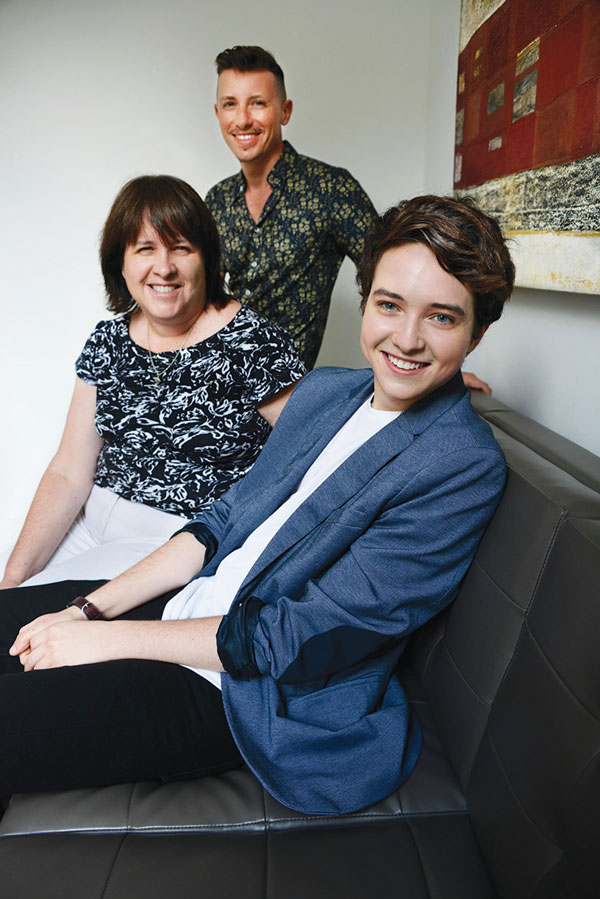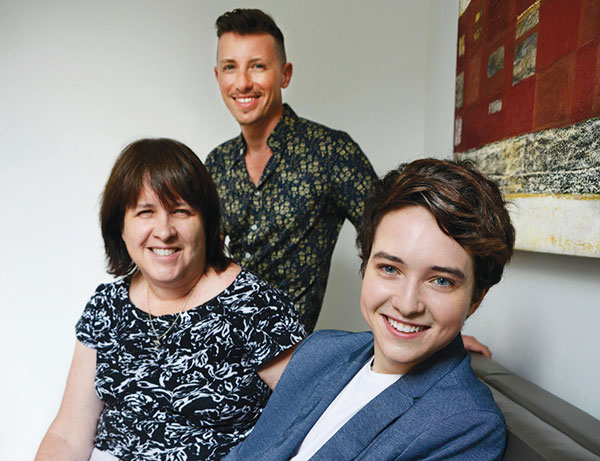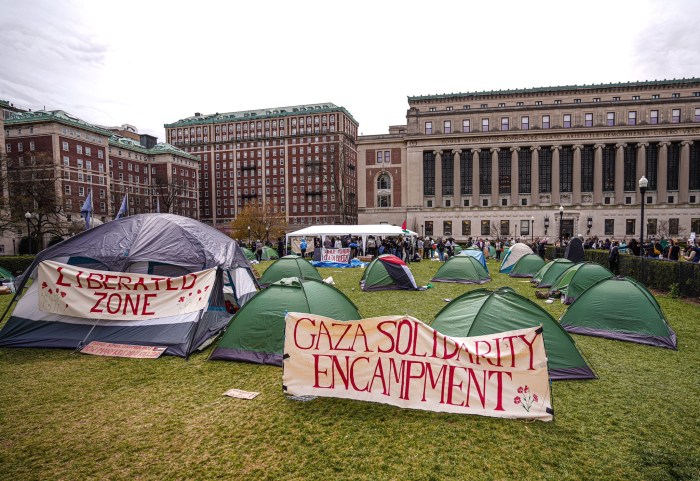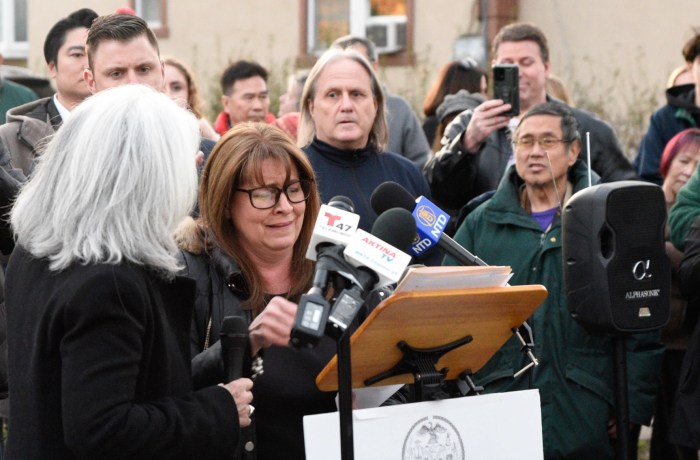
From left, Mary Mogerley; Jean Malpas, director of the Gender and Family Project; and Lucas Mogerley.
BY BOB KRASNER | If you find the idea of a person being transgender to be confusing, you can only imagine how complex it is for a young person who is realizing that he or she is not living in the correct body.
Lucas Mogerley was a 10-year-old girl when he became aware of the term “transgender.” His parents, though they suspected he might be gay, were not fully prepared for this news and had no cultural reference points to which they could relate.
Currently, we actually have two reality TV shows concerning the subject — “I Am Cait” and “I Am Jazz” — as well as numerous magazine articles, books and movies. But when Lucas was young, he knew of only one movie about a transgender person.
“It was the story of Brandon Teena and he died at the end,” he recalled.
Luckily, though, his parents not only wanted to help him but also found a place where they could get him, and themselves, aid and counseling — the Gender and Family Project, a branch of the Ackerman Institute for the Family, located near W. 23rd St.
Director Jean Malpas said the organization is there to aid, for example, “the 3-year-old boy who won’t leave the house without a dress,” but also the boy’s family. In other words, Malpas’s mission is not only to guide his young clients through their transition, but also to help their parents and the community, as well, through this process.
Lucas came out to his parents when he was 16. His mother, Mary Mogerley, is enormously grateful for the guidance of the institute. She found the parents groups at the Gender and Family Project to be “tremendously helpful. For a parent who is vulnerable and upset, just learning the vocabulary is very important,” she said.
Lucas concurred, saying, “The institute was a stable place where I could learn the words to talk to other people. And to have people around me who were going through the same thing made it a less lonely experience.”
“When someone transitions, their family transitions with them,” explained Malpas. He has seen families not just “transition, but also transform, for the better.”
And, with any luck, the community will transform along with them.
G.F.P. makes it a point to do outreach to schools, churches and community centers to educate the general public. One teacher noted that, after one presentation by G.F.P., there was an immediate change in the way that the kids spoke about gender.
In Downtown Manhattan, the group has consulted with and provided training for, among others, the 14th St. Y and the East Village Community School. G.F.P. provides resources and clinical services to a large number of families from the Downtown area, and has provided training to mental health professionals throughout the five boroughs. Referring clients to proper legal and medical help is also a part of its service.
Lower Manhattan, Malpas said, is a “wonderful place, where we are working with very diverse economic and social classes and we have had a great response.”
He also noted that they offer gender guidance services for Spanish-speaking youth.
He is very impressed with the large number of parents and kids who call for information, and said the number of groups that they organize has risen dramatically.
“There is a real desire,” he said, “for people to understand gender in a more complex way.”
He stressed the importance of working with the entire family of a “gender expansive” child.
Lucas Mogerley and his family have certainly benefitted from their time at G.F.P. Lucas, who is on his way to a fresh start in college, sums up his current state of mind.
“We’ve gone through a lot in the last two years,” he reflected. “I don’t feel that I have to apologize for anything. I’m proud of who I am and I try to reflect that to other people. I look at where I am now compared to where I was in high school…and I’m kind of normal for once.”
For more information about the Gender and Family Project, call 212-879-4900 ext. 150, or email gfp@ackerman.org or visit the Web site www.ackerman.org/gfp/ .


















